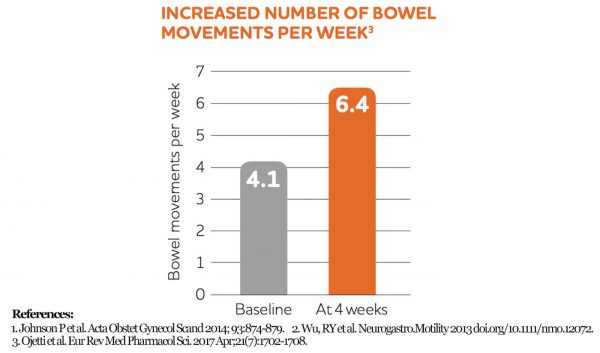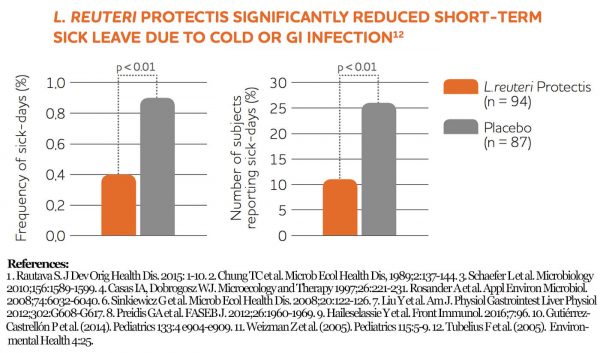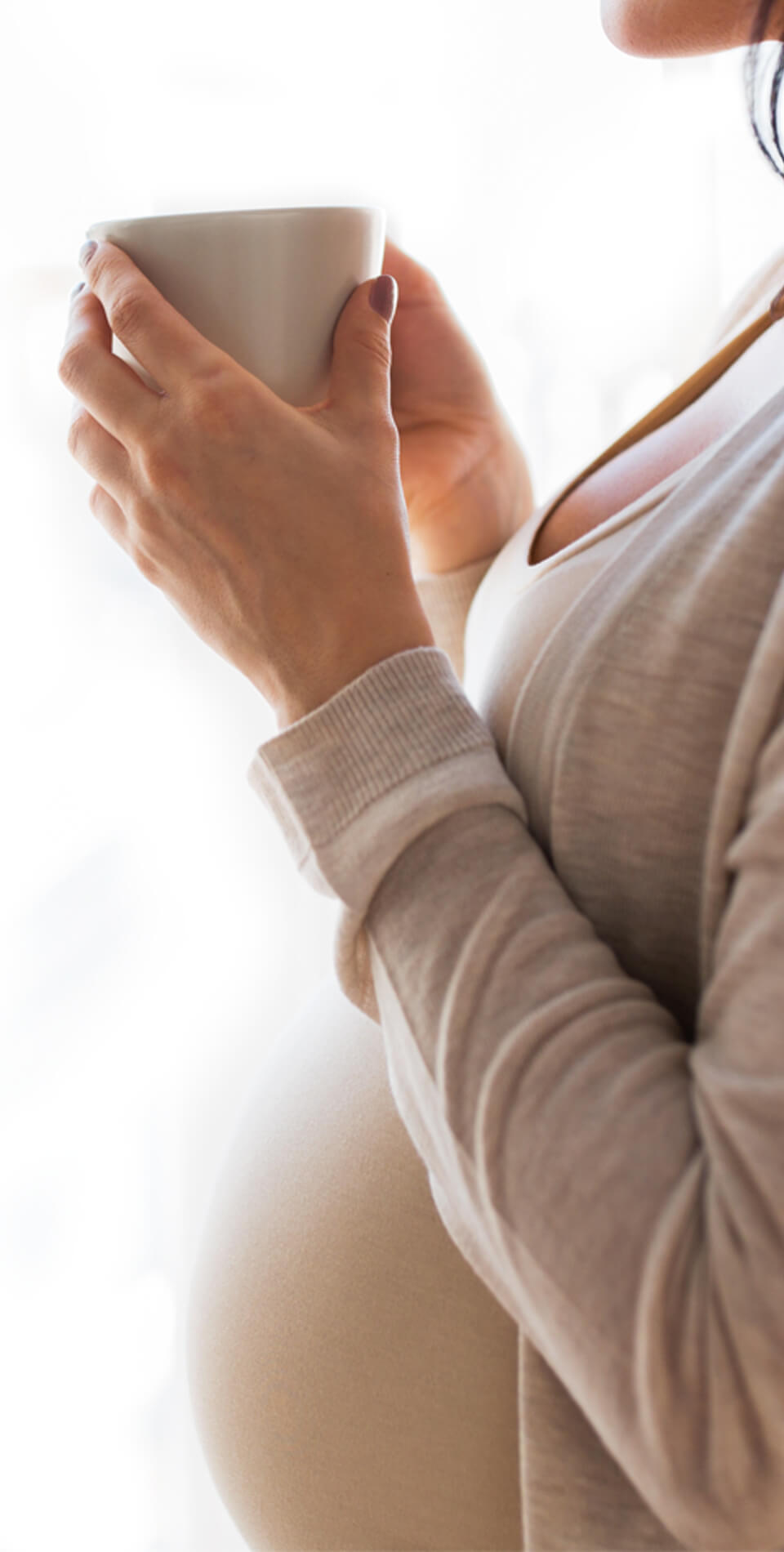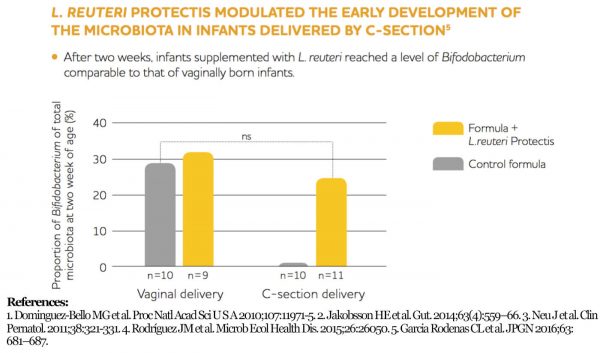Probiotic For Expecting Moms
Being pregnant is a fantastic experience but it is also a major adjustment for your entire body. You are no longer alone in your decisions and actions, but sharing everything with a tiny baby. In many ways, your days as a mother have already begun.
Probiotics can, by promoting a healthy micro- flora, prevent or relieve common pregnancy problems like constipation and pregnancy gingivitis. Probiotics can also increase your overall immunity for infections and may even help boost the immune system for your unborn baby.
Mother To Fetus Through Microbial Communication
It has long been believed that the fetus is sterile in utero and that microbial colonization of the newborn starts first during and after birth. But discoveries now point to pregnancy as the beginning of the bacterial exposure for the developing fetus suggesting that an efflux of bacteria through the placental barrier may occur already during pregnancy.
The maternal microbes are transferred from mother to baby during vaginal birth, by breast milk and possibly through the placenta. However, a hectic lifestyle can create a dysbiotic maternal microbial environment, unexpected events can force delivery through C-section or prevent the breast feeding from functioning properly – all delaying the establishment of favorable bacteria in the intestine of the offspring.
An imbalanced maternal microbial environment can result in developmental abnormalities in the fetal intestine. This may lead to a low-grade inflammation and abnormal intestinal metabolism, resulting in colic symptoms for the newborn baby.
For the pregnant woman probiotics can also help alleviate common pregnancy problems, like constipation as well as increase the overall immunity for infections.
BioGaia probiotics can help improve the gastrointestinal balance for both mother and baby from pregnancy through infancy and beyond.
It is also one of the most well-researched probiotics in the world and has in numerous clinical studies proved to be safe for both mother and child.


Relieves Constipation
- Up to 50 percent of all pregnant women su er from constipation at some point during the pregnancy [1]. Constipation can make a pregnancy more uncomfortable than necessary and may also lead to, or worsen, hemorrhoids.
- BioGaia L. reuteri Protectis affects gut motility which is important for proper food digestion and constipation relief [2].
- An open trial on 20 adults with chronic constipation showed positive results in bowel movements after 4 weeks of daily supplementation with two tablets of L. reuteri Protectis [3].


Protects Against Infections
Since most of the immune system is located in the gut, a healthy and balanced microbiota is essential for a well-functioning immune system [1]. A healthy microbiota can reduce the risk for infections as well as the need for antibiotics.
Reuteri Protectis – A Perfect Match With Vitamin D
BioGaia Protectis D3 strengthens the immune system from the inside with a combination of a clinically proven probiotic and vitamin D. The probiotic strain L. reuteri Protectis has immunostimulatory properties and contributes to digestive health by restoring a natural balance in the gut. It competes with pathogenic bacteria for adhesion receptors, which prevents pathogens from multiplying in the gut [2-9]. In combination with immune-strengthening vitamin D, it provides protection from infections and contributes to health and well-being.
A Clinically Proven Probiotic To Prevent Infections
The health effects of L. reuteri Protectis are well documented in clinical studies conducted in more than 12 300 individuals.
Clinical studies with L. reuteri Protectis have shown:
- Reduced number of diarrhea episodes [10-11] and respiratory tract infections in healthy people [10].
- Decreased number of days and episodes with fever, doctor visits, antibiotic prescriptions and absence from day-care [10-11].
- Cost effectiveness compared to diarrhea and respiratory tract infection treatment [10].


Reduces Antibiotic Side-effects
- Women going through pregnancy and labor are at a greater risk for infections. Since these infections may risk the health of both mother and child, affected women are often treated with antibiotics. Antibiotics may be great for beating out ongoing infections but are unfortunately equally efficient in killing healthy and helpful bacteria. Antibiotics can cause adverse effects such as nausea, vomiting, skin rash, increased risk of thrush (candida) for both mother and baby as well as increase the risk of childhood infection- related hospitalization [1-2].Complications Commonly Treated With Antibiotics
Pregnant women have a higher prevalence of urinary tract infections (UTIs) and if left untreated an UTI during pregnancy may lead to kidney failure and can risk early labor. UTIs are most commonly treated with antibiotics to prevent this occurrence. Women undergoing cesarean section have a five to 20-fold greater risk of getting an infection compared with women who give birth vaginally. Guidelines therefore many times endorse the use of prophylactic antibiotics to reduce the incidence of postpartum infection [1].Antibiotic-associated Side-effects
Antibiotic-associated side-effects usually affect the gastrointestinal system and up to 40% of all adults get antibiotic-associated diarrhea [3]. The high prevalence of side-effects may lead to treatment discontinuation with the risk of treatment failure. Antibiotics given to the mother can also change bacterial exposure of the fetus even before birth, resulting in an unbalanced development of the immune system [4]. Antibioticsʼ effects on the maternal microbiomes may result in an altered gut microbiome in the newborn, impaired intestinal defense and an increased risk for neonatal sepsis [4].Less Antibiotic Side-effects With Protectis
Probiotics are regarded as effective for controlling the overgrowth of potentially pathogenic microorganisms and help to prevent or reduce the incidence of antibiotic-associated side-effects. L. reuteri Protectis has been studied in children as an adjunct to antibiotic treatment, and successfully reduced antibiotic-associated side-effects [5].75% Less Defecation Disturbances [5]
- L. reuteri Protectis reduced antibiotic-associated side-e ects compared to placebo
- The effects on GI symptoms were evident both during the course of antibiotics and the follow-up period


Promotes The Microbiota In Infants Born By C-section
Newborn babies acquire their microbiota primarily from their mother, and initial microbial exposure occurs during and shortly after birth. During vaginal delivery infants are colonized by maternal vaginal and fecal bacteria, including Lactobacillus and Bifidobacterium [1], while infants born via cesarean section (C-section) who are not directly exposed to maternal microbes, are instead colonized by microbes associated with the skin and hospital environment [2]. Cesarean delivery thereby delays the establishment of favorable bacteria compared to newborns delivered vaginally, which may have significant health consequences [3].
Restore The Microbiota
Birth by C-section has been associated with the development of allergy and asthma, as well as type I diabetes, celiac disease and obesity, which may be linked to the altered microbiota colonization in those infants [4]. But new evidence suggests that probiotic bacteria could promote a fast recovery of the microbiota dysbiosis induced by C-section delivery [5].
A recent study showed that L. reuteri Protectis significantly increased the proportion of Bifidobacterium and Lactobacillus, and decreased Enterobacteriaceae in infants born by C-section, making their microbiota more similar to that of vaginally born infants [5].


Improves Infantile Colic
- Infantile colic is a common condition, and as many as 26% of infants are diagnosed with the condition [1]. Immature or dysfunctional intestinal microbiota may lead to a low-grade inflammation and abnormal intestinal metabolism, resulting in colic symptoms. The etiology of infantile colic is multifactorial and not fully understood but gut dysmotility and visceral hyper sensitivity are regarded as main factors behind the condition [2].Microbiota In Infants With Colic
Growing evidence in the literature has linked the gut microbiota to colic in infancy. Low levels of Lactobacillus and Bi dobacterium and high levels of coliform bacteria, in particular E. coli, have been observed in colicky infants compared to noncolicky ones. Such imbalance could be a possible cause for abnormal gut motility and increased gas production, implicating dysbiosis as a key driver in infantile colic [3].
Reduced Fussing And Crying With Biogaia Protectis
L. reuteri Protectis is the only probiotic with expert recommendations for both treatment and prevention of infantile colic.4 Possible mode of actions include an improvement of gut motility and direct effect on visceral pain. In addition, it has been shown that supplementation of L. reuteri Protectis in colicky babies, increased fecal Lactobacilli and decreased fecal E. coli. These changes in the microbiota may also be one of the explanations behind the clinical improvement of colicky babies.5 Several studies have shown that L. reuteri Protectis reduced crying and fussing compared to placebo in infants with colic [5-9]. One study has also shown a preventive effect. Administration of L. reuteri Protectis to healthy newborns reduced the daily inconsolable crying more than 50% [10].

